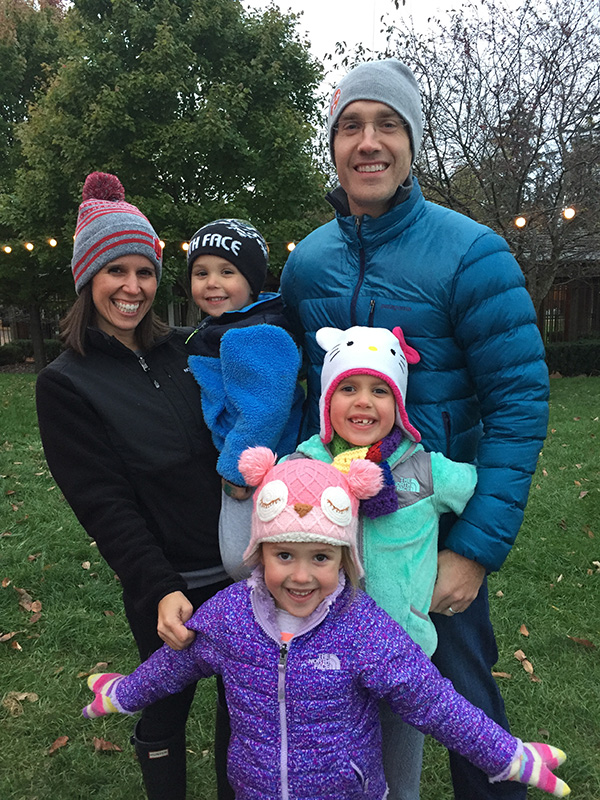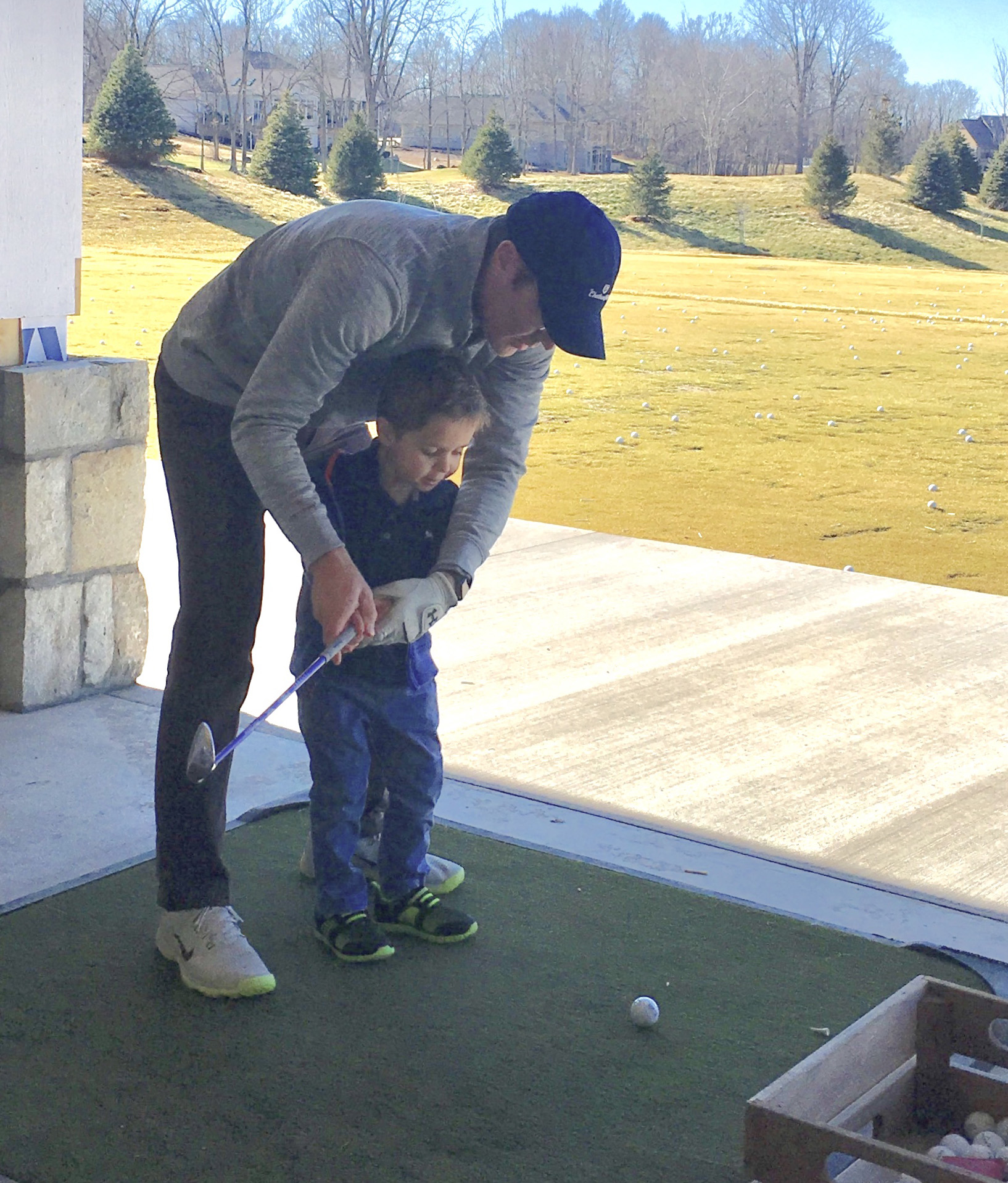They travel from across the country, seeking treatment for testicular cancer. The young men – the average of diagnosis is about 33 – are advancing in their careers, and expanding their families. Many say that when they hear the diagnosis, they have no words.
Like his patients, Dr. Clint Cary is also a man of few words. And like his patients, he is a husband and a father.
 Inside his office in Simon Cancer Center, are construction paper drawings created with little hands. There’s a homemade frame covered in hearts with a picture of Dr. Cary with his smiling daughter. He has two daughters, ages 6 and 8 and a son, 4. He says his wife Adrienne has the toughest job of all – raising their three children.
Inside his office in Simon Cancer Center, are construction paper drawings created with little hands. There’s a homemade frame covered in hearts with a picture of Dr. Cary with his smiling daughter. He has two daughters, ages 6 and 8 and a son, 4. He says his wife Adrienne has the toughest job of all – raising their three children.
The landscape of his life is not unlike that of his patients.
The American Cancer Society estimates about one in every 250 males will develop testicular cancer at some point during their lifetime. It’s estimated about 9,310 new cases will be diagnosed this year and about 400 deaths will result from testicular cancer. New treatments – including clinical trials – reduce the risk of death to about 1 in 5,000 of those diagnosed. Treatment typically depends on the type and stage of the cancer. Options may include surgery, radiation, chemotherapy, or high-dose chemotherapy followed by stem cell transplant.
Dr. Cary’s role at IU Health is to help patients navigate their treatment options. His research interests are specific to early and late stage testis cancer. He also has an interest in both muscle invasive and non-muscle invasive bladder cancer. His research is funded by the National Institute of Health.
Following is more about Dr. Cary:
- He completed medical school at the University of Tennessee Health Science Center in 2005; completed his internship and residency with IU School of Medicine; and obtained his Masters in Public Health from the University of California, followed by a second fellowship also at the University of California.
- What it means to be part of team that is working to increase the survival rates of young men with testicular cancer. “I think here the history of care for those patients is remarkable and to be a part of that legacy of care for patients is a privilege. It is a young group of men with their whole lives in front of them so if you can offer treatment with a lot morbidity rate, this is very rewarding.”
 What it means as a doctor to know that patients travel from around the country to be treated at IU Health: “From a patient perspective I’m sure it’s scary to travel to a state a lot of them have never been to. We may not appreciate that as much as we should but I don’t look at them as coming to a world-class center –even though it is just that – I do what I’ve been trained to do. If you get caught up in all that then you lose focus as to why you are here.”
What it means as a doctor to know that patients travel from around the country to be treated at IU Health: “From a patient perspective I’m sure it’s scary to travel to a state a lot of them have never been to. We may not appreciate that as much as we should but I don’t look at them as coming to a world-class center –even though it is just that – I do what I’ve been trained to do. If you get caught up in all that then you lose focus as to why you are here.”- Germ Cell testicular cancer is a very rare and aggressive type of testicular cancer. Choriocarcinoma is likely to spread rapidly to distant organs of the body, including the lungs, bones, and brain. What do you see as the future with regards to stopping this in its tracks? “I think fortunately from all the work that’s been done here, the survival is very high so there are only a small number of patients who die from testis cancer. There are some areas that we need to improve on – understanding long-term effects of treatment, understanding patients who are refractory to chemotherapy or have a relapse several years out. We need to continue to improve on those patients who are curable.”
- What do you say when patients come in and like you husbands and fathers? “I tell them that this is an unfortunate disease but there is hope. A lot of them have to go through some tough surgeries but they are otherwise young and healthy and there is an end in sight. Hopefully we are their last stop on that journey to better health.”
— By T.J. Banes, Associate Senior Journalist at IU Health.
Reach Banes via email at T.J. Banes or on Twitter @tjbanes.
